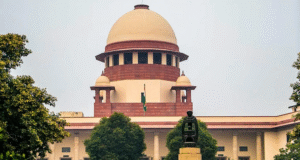In a significant judgment, the Supreme Court of India has emphasized the need for a liberal approach when dealing with disability pension claims of army personnel, especially in cases involving mental health conditions such as schizophrenia. The court granted disability pension to a former soldier who had been discharged from service due to schizophrenia, citing that the medical report leading to his discharge lacked proper reasoning.
A bench comprising Justices Abhay S. Oka and N. Kotiswar Singh noted that medical board reports form the foundation of decisions regarding the discharge and pension eligibility of servicemen. Thus, the court ruled that the absence of a reasoned explanation in such medical opinions renders any related administrative action legally unsustainable. The judges asserted that these reports are not a mere formality but a vital piece of evidence on which pension sanctioning authorities must base their decisions.
The case involved a sepoy who had joined the Indian Army on November 17, 1988, and served for over nine years before being discharged in May 1998. The discharge was based on a diagnosis of schizophrenia by an Invalidating Medical Board, which concluded that the illness was not attributable to or aggravated by military service and was instead constitutional in nature. However, the Supreme Court found no substantial reasoning in the medical board’s opinion to support these conclusions.
Highlighting the challenges faced by soldiers with mental illnesses in establishing a link between their condition and military service, the bench stressed that a more compassionate and flexible interpretation of rules is warranted. It remarked that the disability pension scheme is a welfare measure designed to support soldiers who have served the nation and now face hardships due to health issues.
The court also observed that when a serviceman does not voluntarily seek discharge, the responsibility of justifying the denial of disability benefits lies heavily on the military authorities. If the decision to discharge is based solely on an unreasoned medical report, it opens the door for legal scrutiny.
While the court chose not to reverse the original discharge order, acknowledging that 27 years had passed since the appellant’s release, it directed the authorities to grant him disability pension immediately, along with all attendant benefits as per the relevant rules. However, the court limited the arrears to the last three years, excluding earlier dues.
This ruling reinforces the principle that legal and administrative decisions affecting the welfare of armed forces personnel must be grounded in transparency, fairness, and empathy—especially when those decisions impact the lives of individuals living with mental health conditions.







